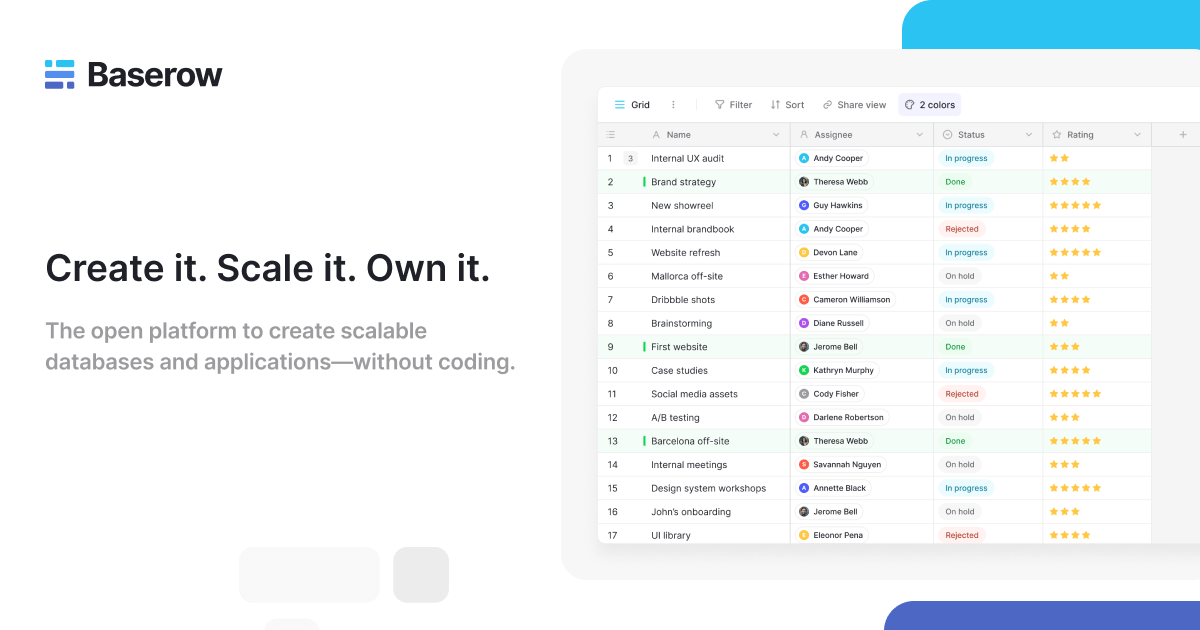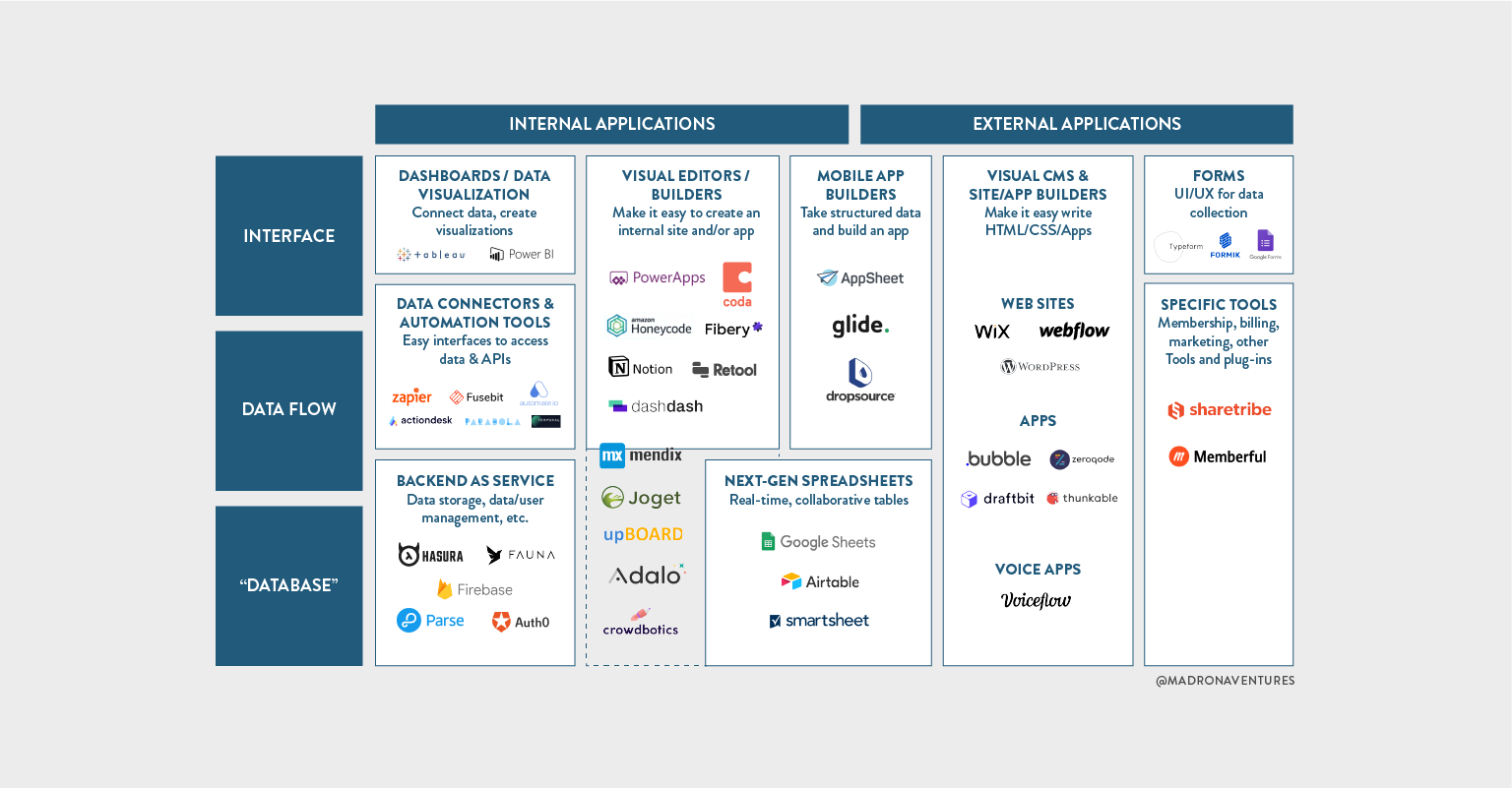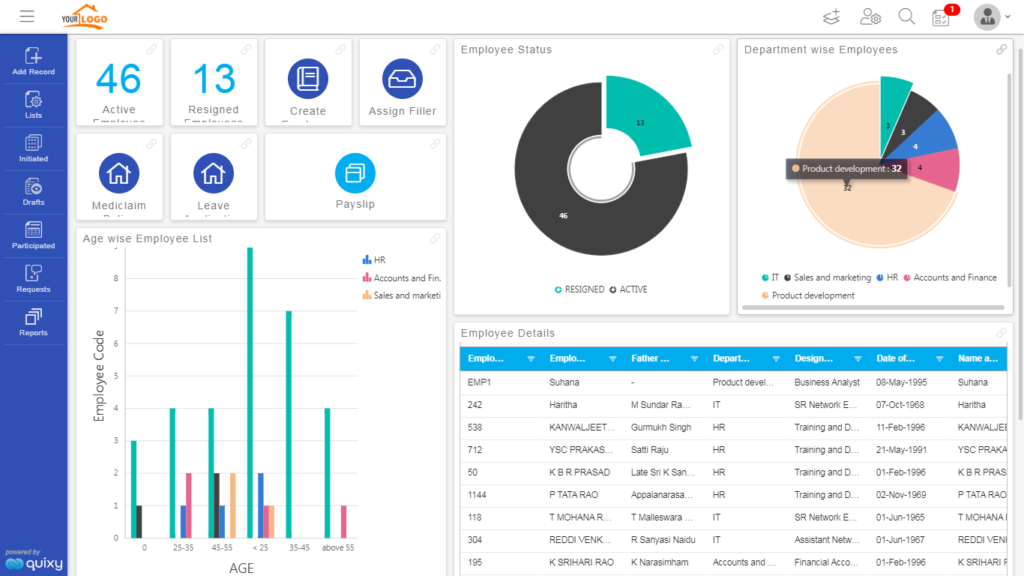Effortless Open System Data Source Creation Utilizing No-Code Modern Technology
Effortless Open System Data Source Creation Utilizing No-Code Modern Technology
Blog Article
Checking Out the Benefits of Scalable Databases That Require No Coding Abilities for Efficient Information Management Solutions
The emergence of scalable databases that remove the necessity for coding abilities presents a transformative possibility for organizations seeking effective information management options. By enabling non-technical customers to harness the power of data with instinctive interfaces, these systems boost access and foster cooperation across diverse groups. Additionally, their cost-effectiveness and flexibility to advancing organization needs can substantially streamline functional procedures. As we think about the ramifications of such developments, it comes to be essential to take a look at just how they can reshape the landscape of information administration and drive sustainable growth in an affordable atmosphere.
Enhanced Ease Of Access for Individuals
Improved ease of access for users is an important facet of scalable databases, guaranteeing that data management systems are intuitive and user-friendly. In a period where data-driven choices are critical, accessibility allows a bigger series of individuals, including those without considerable technological knowledge, to engage with data source systems successfully. This democratization of data access assists in enhanced collaboration throughout departments, encouraging workers to extract understandings and make notified decisions.
Easy to use interfaces, such as aesthetic data and drag-and-drop features representation, simplify intricate data communications. These enhancements lower the discovering curve connected with standard data source administration, enabling individuals to concentrate on leveraging data as opposed to grappling with technological intricacies. Scalable data sources often integrate real-time analytics and customizable dashboards, giving users with immediate understandings customized to their specific needs.

Cost-Effectiveness and Resource Cost Savings
Reliable information administration not just rests on access but likewise on cost-effectiveness and source financial savings. Scalable databases created for users without any coding abilities substantially reduce monetary worries generally connected with conventional data source management systems. By getting rid of the demand for specialized programs knowledge, companies can allocate their resources extra efficiently, concentrating funds on core service activities as opposed to considerable training or hiring skilled workers.
Additionally, these data sources often use cloud-based options, which better decrease expenses connected to equipment and upkeep. Organizations can scale their database solutions according to their requirements, preventing the costs sustained from over-provisioning sources. This adaptability indicates organizations can adjust to transforming needs without sustaining unneeded costs, leading to substantial long-term cost savings.
Furthermore, easy to use interfaces improve data entrance and administration processes, decreasing the time spent on administrative tasks. This efficiency converts right into labor price savings, enabling teams to focus on strategic initiatives as opposed to regular upkeep. Generally, embracing scalable databases that require no coding skills promotes a more economical strategy to information management, enabling companies to optimize their resources while maintaining high degrees of functional effectiveness.
Improved Partnership Across Teams

In addition, scalable data sources promote seamless communication among staff member. With straightforward interfaces that require no coding skills, employees can easily create, modify, and share reports or dashboards tailored to their specific needs. This democratization of information encourages non-technical individuals to add understandings, improving the collective atmosphere.
Furthermore, these databases support concurrent access, allowing multiple users to deal with the very same dataset at the same time. This function enhances productivity, as groups can take part in joint data analysis without the risk of version control concerns. The capacity to leave remarks or notes straight within the data source additionally promotes dialogue and makes clear information interpretations.
Streamlined Data Monitoring Processes
In today's data-driven atmosphere, organizations recognize the need of structured data management refines to maximize performance and accuracy. By leveraging scalable databases that need no coding abilities, businesses can streamline their data handling and minimize the complexities usually connected with traditional data source systems. This access encourages non-technical individuals to engage straight with data, facilitating quicker decision-making and minimizing dependence on specialized IT employees.
Streamlined information administration procedures enhance process by automating routine tasks such as information entry, validation, and coverage. Automated data combination makes sure that information from different resources is accumulated flawlessly, eliminating silos and cultivating an unified sight of vital organization metrics (no-code). In addition, user-friendly user interfaces permit workers to control data quickly, find out here now enabling them to create insights that drive calculated efforts without the need for extensive training.
This effectiveness i loved this not only increases functional processes but additionally lessens the possibility for human error, making certain that information continues to be exact and reliable. Inevitably, streamlined information administration processes via scalable databases lead to boosted efficiency, enabling companies to concentrate on core activities while making sure that their data management practices are reliable and efficient.
Scalability for Expanding Organizations

For increasing ventures, the capability to scale up or down is crucial. A scalable database can manage an increase of data created from new clients, items, or solutions, ensuring that company operations stay continuous. These databases supply the ability to handle peak lots efficiently, which is crucial during periods of fast development or seasonal spikes.
In addition, lots of scalable data source options are created with easy to use interfaces that need no coding skills, equipping non-technical staff to handle information successfully (no-code). This democratization of information management enables organizations to allot sources strategically and lower reliance on specialized IT employees
Eventually, taking on a scalable database not just improves operational efficiency yet also promotes an environment where organizations can introduce and develop without the constraints of standard database systems. This adaptability settings organizations for lasting success in today's affordable landscape.
Final Thought
In conclusion, scalable data sources that need no coding skills supply significant benefits for efficient data administration. By streamlining information administration procedures and providing scalability for growing companies, such remedies allow organizations to adjust to changing demands effectively.
Improved access for users is a crucial element of scalable databases, making sure that data administration systems are instinctive and user-friendly.Straightforward user interfaces, such as drag-and-drop features and visual information depiction, streamline complex information interactions. In general, adopting scalable databases that need no coding skills fosters an extra cost-effective method to data monitoring, allowing organizations to optimize their sources while maintaining high degrees of functional performance.
By leveraging scalable data sources that need no coding skills, services can simplify their information handling and lower the intricacies typically connected with conventional data source systems - no-code.Streamlined information monitoring why not try these out procedures boost process by automating routine tasks such as information entrance, validation, and reporting
Report this page